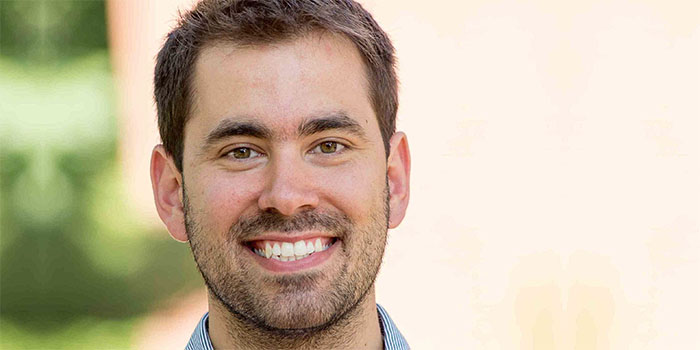
Control Seminar | MPEL Seminar
Enabling a responsive grid with distributed load control and optimization
This event is free and open to the publicAdd to Google Calendar

Abstract: Public policies are requiring massive deployments of clean energy and electrification of entire industries while expecting a reliable supply of electricity. However, as these efforts scale up, new operational grid challenges will arise. To overcome these challenges, distributed control of responsive, residential electric loads (e.g., electric water heaters, HVAC, and electric vehicle charging) and energy storage is expected to play a major role in smoothing the transition to a clean energy future. However, at scale, these electric load control schemes must be responsive to 1) system-wide incentive signals, 2) local network conditions, and 3) local quality of service (QoS) requirements from end-users. This talk will present recent results on distributed load control methods that ensure real-time responsiveness, network-awareness, and QoS guarantees, including field demonstrations involving more than 200 loads in people’s homes. We will also explore the role of convex restrictions in enabling network-aware load control schemes and overcoming critical information and control gaps between today’s grid operators and load aggregators. Finally, the talk will highlight upcoming cyber-physical testbeds at the University of Vermont, including a 100kVA field site for testing control and optimization algorithms for hybrid energy systems
Bio: Mads R. Almassalkhi is the L. Richard Fisher Professor of Electrical Engineering at the University of Vermont and holds a joint appointment at PNNL as Chief Scientist. His research interests lie at the intersection of power systems, mathematical optimization, and control systems and focus on developing efficient algorithms that improve responsiveness of energy and power systems. He was the Otto Mønsted Visiting Professor at Denmark’s Technical University (DTU) in 2021-2022 and his work has been recognized with a recent NSF CAREER award in 2021. In 2016, Mads co-founded clean-tech startup Packetized Energy, which was recently acquired by the largest demand-response provider in the U.S. Prior to joining the University of Vermont, he was lead systems engineer at energy startup company Root3 Technologies in Chicago, IL. Before that, he received his PhD from the University of Michigan in Electrical Engineering (EE): Systems in 2013 and a dual major in Electrical Engineering and Applied Mathematics at the University of Cincinnati in Ohio in 2008. He currently serves as the Chair of the IEEE CSS Technical Committee on Smart Grids. When he is not working on solving energy riddles or teaching, he spends his time with his amazing wife and their three wonderful children.
***Event will take place in hybrid format. The location for in-person attendance will be room 1311 EECS. Attendance will also be possible via Zoom. Zoom link and password will be distributed to the Controls Group e-mail list-serv.
To join this list-serv, please send an (empty) email message to [email protected] with the word “subscribe” in the subject line. To cancel your subscription, send an email to [email protected] with the word “unsubscribe” in the subject line. Zoom information is also available upon request to Michele Feldkamp ([email protected]) or Sher Nickrand ([email protected]).
 MENU
MENU 
